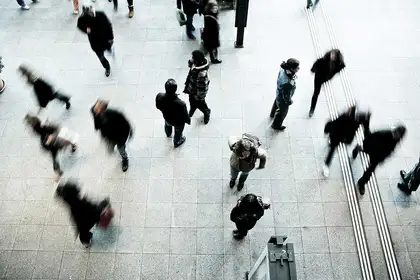
Topics at the conference include how to create a more inclusive society (Photo by Timon Studler on Unsplash).
Diversity in neighbourhoods and workplaces – and online debates about free speech – are themes addressed by Massey University sociologists in this week’s Arahia He Ara Pathways conference on immigration and diversity.
The overarching theme of this year’s conference at Massey’s Auckland campus on Tuesday, 19 November, is Diversities of Migration: racism, difference and inequalities. The Pathways conference was established in the 1990s as an annual event for research and policy communities to discuss current issues relating to immigration and diversity.
Senior lecturer and conference co-organiser Dr Jessica Terruhn says this year’s conference builds on and extends this legacy by highlighting the variety of ways that migration is shaping contemporary Aotearoa, while also seeking pathways to address the challenges of racism, settler colonialism and inequalities.
“Our aspiration is that together we can work as pathfinders, charting new directions for more inclusive societal futures,” Dr Terruhn says.
In his presentation ‘Performing rage’: undermining diversity recognition in Aotearoa by defending free speech, hate speech and bigotry, Distinguished Professor Paul Spoonley addresses what he describes as “a populist rage at diversity” – or “performing rage” – enabled by online platforms and forums. This has resulted in “the internationalisation of populism and extremism and the possibilities provided by online platforms, at the cost of diversity recognition,” Professor Spoonley says.
In their presentation, Dialogues with diversity: working in organisations to understand constraints and opportunities, Associate Professor Robin Peace, from Massey, and independent researcher Geoff Stone, will share their findings on how three organisations are responding to diversity and building their capability and capacity in relation to more diverse clients and stakeholders.
Dr Trudie Cain will discuss her work on how senior adults in Auckland negotiate super-diversity and how they “live with difference” in densely-populated neighbourhoods.
Dr Terruhn will present her work on how notions of equality and diversity play out in the visions of current urban development projects, with a focus on the Auckland suburb of Northcote.
Topics covered by keynote speakers, presenters and panellists include; the rise and fall of the discriminatory “family link” refugee policy, the importance of listening to communities in the aftermath of the Christchurch massacre, citizenship, cultural identity and Indigenous political participation, and migrant exploitation in New Zealand.
Dr Terruhn, who is coordinating the conference alongside colleagues and partners at the Auckland Council and the Human Rights Commission, says the richness and scope of the presentations will provide fresh insights, nuanced understandings and varied perspectives on the lived experiences of diverse communities in this country.
“Informing policy makers and the wider public on issues relating to immigration in a way that promotes understanding and pathways to inclusion is a central aim of the conference,” she says.
Keynote speakers include: Anjum Rahman, a chartered accountant and the acting head of the Islamic Women’s Council of New Zealand); Dr Emily Beausoleil, a lecturer of politics at Victoria University of Wellington; Melinda Webber, an Associate Professor at the University of Auckland; Rachel Simon-Kumar, an Associate Professor, School of Population Health, at the University of Auckland; and Shanthi Robertson, a sociologist and senior research fellow in migration studies and globalization at the Institute for Culture and Society at Western Sydney University.
The opening address will be given by Auckland-based list MP Priyanca Radhakrishnan, a member of the Asia New Zealand Foundation Leadership Network and the National Council of Women.
For more information on the speakers and programme, click here.